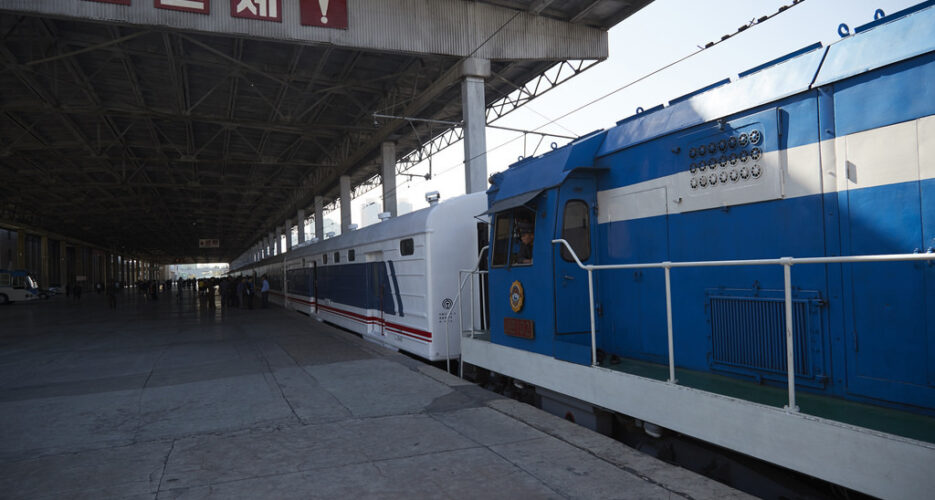Communist countries loved their railways. In all Communist Bloc countries, (or, if you prefer, "countries of really existing socialism"), the railway's role was, should we say, blown out of all proportion. For example, in the USSR of 1975, the railway's share of cargo transportation was 62% (higher, actually, than it had been in 1913), while for passenger traffic the figure in 1980 was 38%.
One can argue that the vast territory and low population density of the Soviet Union played a role, but the same predisposition towards rail can be found in nearly all other communist states – and, as we will see, it is especially pronounced in the case of North Korea.
Communist countries loved their railways. In all Communist Bloc countries, (or, if you prefer, "countries of really existing socialism"), the railway's role was, should we say, blown out of all proportion. For example, in the USSR of 1975, the railway's share of cargo transportation was 62% (higher, actually, than it had been in 1913), while for passenger traffic the figure in 1980 was 38%.
One can argue that the vast territory and low population density of the Soviet Union played a role, but the same predisposition towards rail can be found in nearly all other communist states – and, as we will see, it is especially pronounced in the case of North Korea.
Try unlimited access
Only $1 for four weeks
-
Unlimited access to all of NK News: reporting, investigations, analysis
-
Year-one discount if you continue past $1 trial period
-
The NK News Daily Update, an email newsletter to keep you in the loop
-
Searchable archive of all content, photo galleries, special columns
-
Contact NK News reporters with tips or requests for reporting
Get unlimited access to all NK News content, including original reporting, investigations, and analyses by our team of DPRK experts.
Subscribe
now
All major cards accepted. No commitments – you can cancel any time.











